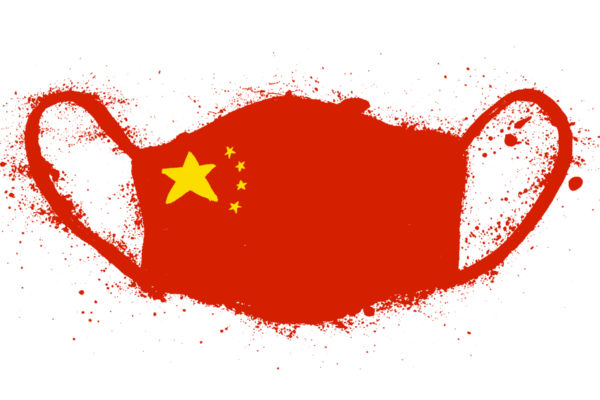When I joined Peace Corps, I went into service weighing 180 pounds at 5’4”. I never used to be that large and never had to lose weight in my life. In my younger years, I was involved in sports, very active, and always considered myself fairly average or thin, although my high school classmates didn’t always agree.
My freshman 15 turned into a junior 50, and before I knew it, I was huge. My first trip abroad, I was huge too. It was clear that I had been neglecting to take care of myself in my adulthood. But once I joined Peace Corps, everything changed.
I was an active person before I went to China and exercised every day, but my diet was truly terrible. I ate poorly, I didn’t exercise as hard as I should’ve and when I went to bed at night, I felt a huge roll collect underneath my armpit.
When I arrived in China, I definitely felt big, especially walking in a swarm of people who aren’t fat, to begin with. When I moved in with my host family, they fed me constantly, and I gained an extra 10 pounds over a two-month period, which made me feel even worse.
But after I got to my permanent site in Chongqing, China, everything changed. My difficulties teaching English to high school kids led me to the only thing I knew would help me cope with how I was feeling. I had opted out of drinking too much alcohol or overeating, so I decided instead to join the gym across the street from my apartment.
That was the beginning of my transformation, taking the step to join. From there, I fell in with the crowd of coaches who were interested in the foreigner who just joined their gym. Foreigners were scarce in the area I lived in, so they found me and my massive size interesting. But one individual, in particular, took a liking to me and offered to coach me. His name was Sam, and he became one of my greatest friends over there.
In two years, I went from 190 to 140. I still had the opportunity to eat the delightful foods in China, but I had to give up many things too. So below are some of the ways I lost weight and kept it off during my life in China.
Stay Active
From the get-go, it’s important to make sure you don’t start engaging in an activity you’re going to hate. Luckily, China was designed for walking, so you should be active most of your day if you decide to get out and explore. When I started out, I ran for 30 minutes every day and lifted heavy weights. I ended up being at the gym for two hours a day. This is a more traditional method. If you want something less time consuming and something that burns fat faster, I suggest trying a High-Intensity Interval Training (HIIT).
The even more important thing is to mix things up. After a while, your body will get used to the exercises you’ve routinely started to do. So do some research and try some new exercises. When I dropped 20 pounds, I started looking for a program that would challenge me more, so I chose a program by Ashley Horner, called Pipehitter. By far one of the best programs to help you keep cutting fat.
Stop Eating So Much Bread, Noodles, and Rice
I suggest going for the low carb diet and kicking bread, noodles, and rice because most of the time, those things are packed with sugars your body turns into fat and stores. I recommend cutting out these three things in the first six months of your weight loss journey to help your body recomposition itself to metabolize the way it should.
Those three things also have a higher tendency to make you feel bogged down and tired, whereas veggies and proteins give you the energy you need to make it through the day. Veggies are carbs guys! Just saying.
Once you feel like your body is burning fat and metabolizing like it should, feel free to treat yourself to a bowl of delicious noodles and reward yourself for your hard work. Just don’t go overboard.
Cut Out Sugars
Believe it or not, you’ll have a heck of a time finding a plain loaf of bread with no sugar or a plain cup of sugarless yogurt. I was so surprised to take my first bite of yogurt to find out it was sweet. It became a quest to find yogurt that wasn’t sweet. If you’re a Peace Corps Volunteer or expat living in China, resorting to sweet treats as a way of comforting yourself is just as tempting there as it is in your home country. Sugar is terrible for you and you react to it like your brain reacts to cocaine, which is a proven study.
This is not to say you shouldn’t indulge in your favorite sweet treats, in fact, there are delicious street sweets you can find out there that are perfect for curbing that sugar craving. Ying Er and Liang Gao are two of my favorites!
One of the upsides of living in China, is you have access to fruits that are cut up right in front of your eyes for you. Eat fruits to ease your sugar cravings, especially because eating fruit over in China is hella cheap.
Eat With Chopsticks More
Now, this is a theory and my observation, but I think eating with chopsticks actually makes you eat less. With a spoon or fork, you’re just shoveling food into your gullet without taking the time to savor the flavors. With chopsticks, you take one piece at a time. Taking each piece one at a time makes you eat slower, eating slower helps your body register when you’re full. Boom! No overeating.
Then you don’t go home feeling like your about to throw up and elephant. You save those meals for when you’ve decided to splurge on a huge foreign feast at your most favorite and expensive restaurant.
Know the Difference Between Good and Bad Oils
Depending on what part of China you’re in, the food may be soaked in oil. And while that’s delicious, it may not be the healthiest. Most families cook with soybean or sesame oils, which aren’t the best for your health. And be careful of some restaurants that use gutter oils to cook their food.
When you cook at home, try cooking with butter or coconut oil. Olive oil can be used too, but the cooking point is not as high as coconut and could turn into a bad oil. Olive oil is also best for the body when eaten cold.
Cooking with butter and coconut oil helps your body curb cravings and even helps you lose weight!
Eat More Spicy Food
Sort of similar to eating with chopsticks, eating spicy food contributes to you eating less. Your body can only handle so much spicy before it shuts down and says, I’m done eating this. In Chongqing, you’ll find a wide variety of spicy foods that help you achieve this. Hot Pot and Spicy Noodle Dishes are good dishes to start with.
Eating spicy food also helps you eat slower. If you’re eating a good hot pot meal, you may spend three hours just finishing your meal, but you can guarantee you won’t be eating as much food.
Drink More Tea
You’ve reached the tea capital of the world! Or one of them anyway. Loose leaf tea is super cheap in China, even more delicious than any tea bag you would dip in your water at home, and it’s incredibly good for you. Drinking green teas like Long Jing and Jasmine help boost your immune system and cut fat around your belly.
Plus, drinking lots of green tea causes your stomach to fill with more liquids. By the time you reach your next meal, you’ll eat less because you’ve tricked your stomach into thinking it’s full.
Cheat A Little
Getting through this weight loss doesn’t have to be hard. Taking a break every week to try some street barbecue or meet your friends for lunch down the street at a noodle place, those need to happen. Missing out on the incredible Chinese cuisine will be your biggest regret. So you get those spicy potatoes, you get those spiced up skewers of meat, and you slurp of a huge bowl of noodles. Just make sure you get back to the gym and stick to those goals.
Personally, I felt losing weight and staying healthy in China was a lot easier and staying healthy and losing weight in America. I felt this way because we are host to a lot more processed foods and people tend to shop those processed foods. Whereas the Chinese population tends to cook food from scratch and serve dishes fresh. Their culture involves them making home-cooked meals. But even dining out can seem like a home cooked meal at times. I could probably still eat out and not feel as guilty about what I’m eating in China as I feel eating fast food here in the US.
If you liked what you read, leave comments below about your weight loss experience or your weight loss experiences in China! If you want to see more about food, check out my blog post about Chongqing style dishes I fell in love with.





No Comments